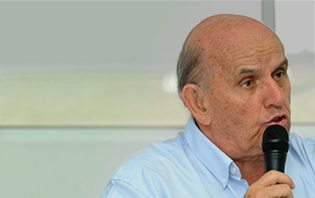 Just when you think you understand the crazy world of political correctness, somebody comes and messes everything up.
Just when you think you understand the crazy world of political correctness, somebody comes and messes everything up.
It used to be, for example, that you could simply “self-identify” as someone you are not, yet desire to be. Now, in the municipal offices of the Colombian city of Cali, the opposite is true. It is forbidden to identify as what you actually are. The world is truly turned upside down.
The mayor of Cali has recently banned all city employees from using any title such as “doctor,” “sir” or even his own title of “mayor.” In Latin America, such designations in Spanish have always indicated a person’s level of education, status or office, yet now are being considered elitist.
“Just call me Maurice,” says Maurice Armitage, the mayor of Colombia’s third largest city. The municipal order calls for the use of first names only. Any title before a name is taboo inside the city offices. “Maurice” has even asked his fellow comrade/employees to consider extending the practice beyond the office.
The title ban is clearly one of those artificial ideological moves to help level society. Latin Americans have elaborate systems of titles, which they have always been valued and recognized as a sign of social status, consideration and advancement. Titles like doctor are even affectionately and broadly applied to include those who merely aspire to them. Now these terms of endearment and respect, so much a part of region’s culture, are targeted for elimination.
The new rule in Cali is framed in a class struggle context of rich against poor. Ironically, this is happening just when the gap between the two groups has narrowed significantly over the past two decades. More people are become doctors and college graduates that carry their respective titles. Nevertheless, “Maurice” says he hopes his initiative will serve to knock the wealthy—evidently including those newly rich—from their cultural pedestals. As might be expected from liberal media, two of the country’s most important newspapers have praised the leveling efforts of “Maurice” in editorials.
Such a move is typical of the internal contradictions of those who pursue a politically correct course. When it favors the cause of the left, people are free to self-identify as anything they desire or imagine themselves to be. The number of “genders,” for example, is constantly expanding to accommodate the ever-increasing number of imagined states of self-identity. In these cases, people can even be prosecuted for failing to use the preferred pronouns. In such a realm of unreality, the imagination and fantasy rule. Any restraint, including that of logic, is seen as something that obstructs freedom.
However, when something does not favor the cause of the left, people are not even free to be what they actually are. In the quest for universal equality, no one can claim to be more than another. All titles of inequality must be renounced, even mister, doctor or professor, as if they were royal titles. The person must self-unidentify to accommodate the liberal dictatorship of absolute equality. As in the case of those under “Maurice,” employees cannot even opt out.
Such is the “freedom” of today’s politically correct world. There is no freedom for those who oppose new imagined identities based on fantasy. Likewise, there is no freedom for those who hold on to traditional titles firmly founded on reality.
For when a person can be anybody or anything at any time, there can be no real definition or identity. In a similar way, when people are forced to give up what they are in the name of fanatical egalitarianism, they no longer retain the distinctions that make them who they are. The only real option left is that of being nobody.
This “nobody option” attracts many because it carries no responsibilities or duties. Nobodies are free to pursue the frenetic intemperance of the times demanding everything now, instantly and effortlessly. However, being nobody also brings sadness and emptiness that so pervades in a “call me Maurice” society. Much more fulfilling is to aspire to be somebody with all the dignity, duties and honor that come from being a person of character living according to real world.

